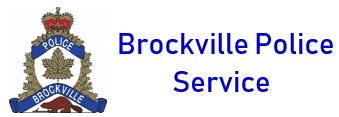The Ontario Association of Chiefs of Police ( OACP) will be holding a news conference at 10:00 this morning in Toronto to discuss the on-going fentanyl crisis in Ontario.
The Chief Coroner of Ontario will also be in attendance.
Key Messages – Fentanyl
- Police across Canada continue to encounter deaths believed to have been caused directly or indirectly by the illegal acquisition, distribution, use, and misuse of the prescription pain medication fentanyl.
- In August, the OACP joined the Waterloo Region Crime Prevention Council (WRCPC), Municipal Drug Strategy Coordinators Network of Ontario (MDSCNO), and Ontario Overdose Prevention and Naloxone Access Working Group (OOPNA) in issuing an advisory warning that communities across Ontario are increasingly reporting the presence of “bootleg” fentanyl in local illicit drug markets in both pill and powder formulations. Bootleg fentanyl are high-dose, illicit opioids much more toxic than morphine, produced and distributed by the black market and distinct from pharmaceutically produced fentanyl patches.
- Carfentanil, a relation to fentanyl but 100 times more toxic, has surfaced in Western Canada an analog of fentanyl. Addiction experts have said as little as 20 micrograms of carfentanil is enough to kill a person. A microgram is smaller than a grain of salt. Recently, liquid fentanyl was found in Hamilton, another indication of the growing opioid crisis in Ontario.
- The inappropriate use, abuse, diversion, storage, and disposal of prescription narcotics and other controlled substances are a public health and safety issue. Communities across Canada have seen a rise in deaths due to misuse of fentanyl.
- Police recognize prescription drug abuse has a serious impact on community safety, leading to increases in a wide spectrum of violent acts and property crimes. Police also believe there is a shared responsibility among several community stakeholders to raise awareness and educate the public.
- The Controlled Drug and Substances Act (CDSA) prohibits anyone from possessing any prescribed medication without a prescription. It is a criminal offence to offer or sell a prescribed medication to another person. Purchasing another person’s prescribed drugs is also illegal.
- Prescription medications are legal and intended for prescription use under a physician’s supervision. When taken as prescribed, they are safe. It is the misuse of the drug that is dangerous.
- Police leaders in Ontario are moving to provide Naloxone, which blocks or reverses the effects of opioid medication (including extreme drowsiness, slowed breathing, or loss of consciousness), to our front-line officers. This medication is now being distributed through social agencies, hospitals and at some pharmacies and can be a lifesaver if people know when and how to use it.
